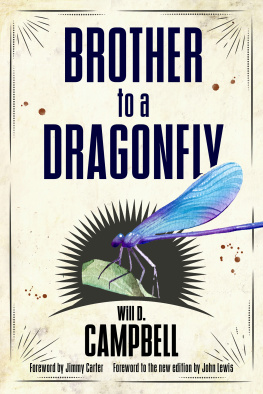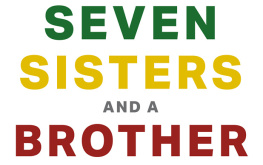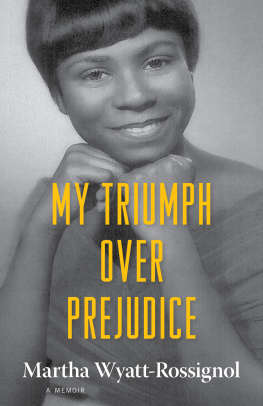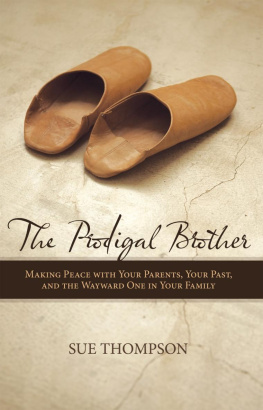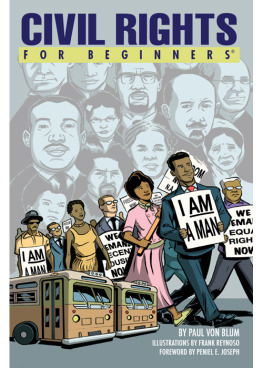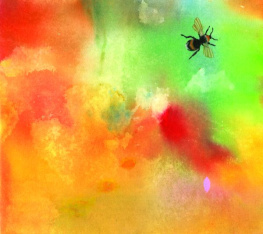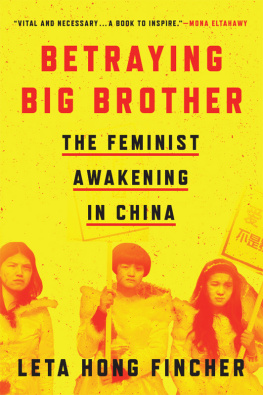
BROTHER TO A DRAGONFLY
BROTHER
to a
DRAGONFLY

Will D.
CAMPBELL
Foreword by Jimmy Carter | Foreword to the new edition by John Lewis |
University Press of Mississippi / Jackson
BANNER BOOKS SERIES
www.upress.state.ms.us
The University Press of Mississippi is a member of the Association of University Presses.
Original text copyright 1977 by Will D. Campbell.
Reprinted by permission from the Will Davis Campbell Family Trust.
Foreword 2000 by Jimmy Carter
Foreword to the New Edition 2018 by John Lewis
All rights reserved.
Manufactured in the United States of America
First UPM printing 2018
Library of Congress Cataloging-in-Publication Data available
Library of Congress Cataloging-in-Publication Data
Names: Campbell, Will D., author| Carter, Jimmy, 1924 author of foreword. | Lewis, John, 1940 February 2 author of foreword.
Title: Brother to a dragonfly / Will D. Campbell; foreword by Jimmy Carter; foreword to the new edition by John Lewis.
Description: Jackson: University Press of Mississippi, [2018] | Series: Banner books |
Identifiers: LCCN 2017060271 (print) | LCCN 2018007084 (ebook) | ISBN 9781496816313 (epub single) | ISBN 9781496816320 (epub institutional) | ISBN 9781496816337 (pdf single) | ISBN 9781496816344 (pdf institutional) | ISBN 9781496816306 (pbk.)
Subjects: LCSH: Campbell, Will D. | BaptistsMississippiClergyBiography. | Civil rights workersMississippi--Biography. | Campbell, Joseph Lee. | PharmacistsMississippiMeridianBiography.| LCGFT: Autobiographies.
Classification: LCC BX6495.C28 (ebook) | LCC BX6495.C28 A33 2018 (print) | DDC 323.092 [B]dc23
LC record available at https://lccn.loc.gov/2017060271
British Library Cataloging-in-Publication Data available
CONTENTS
by John Lewis
by Jimmy Carter
FOREWORD TO THE NEW EDITION
The original edition of Brother to a Dragonfly came out in 1977, forty years ago. It had been less than a decade since Dr. Martin Luther King, Jr. was killed; a national holiday in his honor was still a distant dream. It would be another ten years before I came to serve in the United States House of Representatives. Memoirs from those deeply involved in the civil rights movement of the 1950s and 60s had hardly begun to appear; most of us were more concerned with carrying it on than with recording our experience for posterity. My own book Walking with the Wind wouldnt come out until 1998.
Both a committed activist and a superb writer, Will Campbell would author a total of seventeen books. Every one reflects the depths of Wills heart and soul. Every one carries the gifts of Wills spirit and sense of humor. Brother to a Dragonfly has the distinction of its 25th anniversary edition carrying a fine foreword by President Jimmy Carter. This edition has the distinction of being issued by the University Press of Mississippi. One could hardly have predicted either of those in 1977.
I often say to people that if anyone had told me during the height of the civil rights movement that I would one day be elected to Congress or experience even a small portion of what I have at this point in my life, I would have said, Youre crazy. Youre out of your mind. Yet Will Campbell and President Carter and Dr. King and I all were crazy enough to believe that the land of racial injustice in which we grew up could become a beloved community of racial healing and equal opportunity. The vision that called to us hasnt yet been fully realized. It sometimes gets set back for a while. But to anyone who argues that nothing significant has changed since the days of Jim Crow in Alabama and Georgia and Mississippi, I say, Come, walk in my shoes.
Weve come as far as we have, I believe, because weve been led by a force bigger than we are. I call it the Spirit of History. In a collection of sermons that Dr. King entitled The Strength to Love, he emphasizes the importance of facing our fears and the power of mastering them through courage, love, and faith. When we do that, the Spirit of History carries us forward.
During the civil rights movement, when we were developing strategies, someone usually said, Call Will Campbell. Check with Will. Will knew that the tragedy of Southern history had fallen on our opponents as well as allies on George Wallace and Bull Connor as well as Rosa Parks and Fred Shuttlesworth. He saw that it had created the Ku Klux Klan as well as the Student Nonviolent Coordinating Committee. That insight led Will to see racial healing and equity, pursued through courage, love, and faith as the path to spiritual liberation for all. It was, of course, the same wisdom that guided Dr. King and Rev. Jim Lawson to embrace the transformative power of nonviolence the same wisdom that would guide Nelson Mandela to embrace truth and reconciliation as the path to a new South Africa.
Brother to a Dragonfly is a story of one brothers love for another through many a tragic turning. It is equally a testament to the breadth and depth of heart that will lead us through the tragedies of our context toward the land we are called to become. Its the Spirit of History.
JOHN LEWIS
Member of US House of Representatives
2017
FOREWORD TO THE 25TH ANNIVERSARY EDITION
The occasion of a twenty-fifth anniversary reissue of Brother to a Dragonfly is noteworthy for several reasons. As a true story of family life in mid-twentieth-century Mississippi, the Reverend Will D. Campbells book has attained the stature of an American classic. Its author has made his own indelible mark as a minister and social activist in service to marginalized people of every race, creed, and calling. Those who read Dragonfly when it first appeared around the time of the American Bicentennial celebration in 1976 will be stirred anew by its honest and powerful voice. And a rising generation of readers, discovering the book for the first time, will be getting not only an unretouched picture of life in yesterdays South, but also a clear example of prose writing with enduring and universal qualities.
When I first encountered Brother to a Dragonfly some twenty years ago, it had a profound effect on me. It opened onto a landscape with which I was thoroughly familiar: the rural Deep South of the Great Depression. Like Will Campbell, I was born into such a place, and in the same year; like him, I also was raised as a Southern Baptist, went off to war in the 1940s, and came home to a family and a church in a South and Nation that were soon to be thrust into an era of social transformation that would still be in motion at centurys end.
I felt that I knew this man. He had grown up in poorer circumstances than I, yet the pictures of life that he painted in his book were so close to my own experiences that they lowered the fences of social and economic class and gave us parity as brothers, in a biblical if not a familial sense. With equal effect, as I subsequently was to learn from others, Dragonfly also tore down the walls that separated white and black Southerners. Brother Will, as he was and is called by so many of us who know him, used the force of his words and the witness of his deeds to convey a healing message of grace, reconciliation, and faithful service to any and all who might pay heed.
The sense of pain and loss he felt at the death of his brother Joe, so poignantly recounted in these pages, made all the more meaningful his ministry to my family and me on the death of my brother Billy in 1988. Down through the years, as we have seen our native and beloved South slowly unburden itself of the dead weight of white supremacy, Will Campbell and I have shared the satisfaction and the blessings of that liberating spirit. For as the late Dr. Martin Luther King, Jr., observed in the 1960s, the civil rights movement and the successful legal challenge to racial discrimination freed white men and women who had perpetrated injustice, as surely as it freed black men and women who were its victims.
Next page
